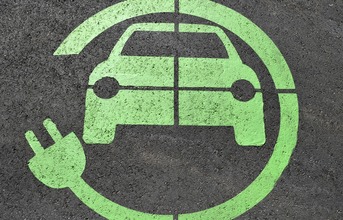
For Dr. Sudhir Mehta, the journey into the electric commercial vehicle space was driven by a clear vision of India's transition to sustainable mobility. Having spent decades in the auto components industry and previously starting a truck company, he recognised that the future of commercial mobility lay in electric vehicles (EVs). "Commercial vehicles are fundamentally about profitability—either by increasing revenue or reducing costs for customers. Electric mobility makes economic sense, and that's why it's inevitable," he explained.
With 45% of India's manufacturing sector tied to the auto industry, the transition to EVs presents the biggest industrial opportunity. Dr. Mehta also highlighted India's potential to become a major EV hub, breaking the 95% global dominance of a single neighbouring country in EV production. Additionally, commercial vehicles, while comprising only 4% of the total fleet, contribute to nearly 50% of carbon emissions—a compelling reason to accelerate EV adoption.
Overcoming challenges to build an EV ecosystem
While the EV market presents immense opportunities, the early days were filled with scepticism. "Many doubted whether India could design and manufacture competitive EVs. Questions were raised about charging infrastructure, supply chains, and whether these vehicles could actually be profitable," Dr. Mehta recalled. However, he remained confident that the economic viability of EVs would ultimately drive adoption.
A major turning point for the company was securing strategic global partnerships. Collaborations with VDL Group in Europe and Mitsui in Japan have given the company a unique edge. "We are possibly the only EV company with top European and Japanese conglomerates as partners," he stated, emphasising how this reflects both the strength of their vision and India's growing credibility in the EV space.
Scaling up in a competitive EV landscape
Rather than viewing competition as a challenge, Dr. Mehta sees it as a positive force that validates the market. "Our company is called Eka, which means ‘coming together.' The more players that enter, the faster the ecosystem will develop," he noted. With the Indian government aiming for 800,000 electric buses by 2030, demand is expected to far outstrip supply.
Drawing parallels with the electric two-wheeler market, where initial overcrowding led to eventual consolidation, Dr. Mehta believes the commercial EV sector will naturally evolve, with players carving out specific niches. "The real challenge isn't demand—it's about delivering the right product at the right price point," he added.
The roadmap for global expansion
While India remains the company's primary focus, they have begun exploring international markets through their partnership with Mitsui. Africa and Latin America have emerged as key value markets. "Many African nations rely on 70-80% solar power, making EVs an even more compelling solution. High fuel costs further strengthen the case for electric mobility," Dr. Mehta explained.
During the Bharat Mobility Show, the company engaged with 25 international delegates, leading to signed MOUs and upcoming demo trials. Over the next few years, the goal is to establish strong partnerships in these markets while ensuring a dominant presence in India.
Innovation at the heart of EV development
One of the company's proudest achievements is developing the widest range of electric commercial vehicles (EVCVs). From three-seaters to 55- ton trucks, their portfolio covers an extensive spectrum. Notably, they have introduced India's first 6-seater EV, a 12-meter 55-seater bus, and the country's longest 18-meter articulated bus, capable of carrying 125 passengers.
The company has invested heavily in R&D through its Pune facility, focusing on breakthroughs in battery technology, vehicle control software, and energy efficiency. "Our approach isn't just about making electric vehicles; it's about making the right electric vehicles for the market," Dr. Mehta emphasised.
Smart technology for smarter fleets
Beyond vehicle design, the company is revolutionising fleet intelligence through Eka Intellectify and Eka Connect. These smart platforms monitor over 1,500 vehicle parameters every half second, covering aspects such as battery health, driver behaviour, and real-time diagnostics.
"Our platform provides AI-driven insights to fleet operators, transport authorities, and even individual drivers, helping them maximise efficiency and cost savings," Dr. Mehta explained. The focus remains on offering holistic solutions rather than just manufacturing vehicles.
Strategic investments for sustainable growth
The company has secured major investments, including funding from Mitsui, which is being utilised for R&D, engineering infrastructure, and manufacturing facilities. Two new plants in Pune and a third in Pitampur, Madhya Pradesh, are under development, aimed at scaling up production to meet growing demand.
"The Indian EV ecosystem is at an inflection point, with market demand, government support, and technological advancements all aligning," Dr. Mehta noted. He believes that over the next decade, India will emerge as a global leader in commercial EV manufacturing.
Sustainability beyond manufacturing
While producing zero-emission vehicles is a step toward sustainability, the company is also focused on ensuring a green lifecycle for its products. Dr. Mehta pointed out that a major challenge in urban India is traffic congestion, which directly impacts productivity and pollution levels.
"The best way to reduce gridlock is through efficient public transport and last-mile connectivity," he explained. By deploying electric buses for metro connectivity and high-traffic corridors, they aim to reduce commute times and cut emissions. With just 4% of vehicles contributing to 50% of pollution, shifting commercial fleets to electric will have a transformative environmental impact.
The road ahead: Scaling impact
Looking ahead, the company's primary goal is to transition from an R&D driven organisation to a large-scale manufacturer. With 14 new product platforms in development, the next two years will be focused on commercial rollout, service infrastructure, and after-sales support.
"Our ambition is to create an ecosystem where electric mobility is not just viable but the preferred choice," Dr. Mehta said. By aligning market demands, technological advancements, and sustainability goals, the company is positioning itself to be a key player in India's EV revolution.
As the industry evolves, one thing is certain—electric mobility isn't just the future; it's happening now, and India is ready to lead the way.
